I have been pondering this question for a while: when is it okay to ignore a trainer’s input or viewpoint? I feel awkward even blogging about this because 1.) I respect my current and former horse trainers tremendously and I don’t want anyone to think I’m writing about them, because I’m not and 2.) I’m a rule follower/authority respecter.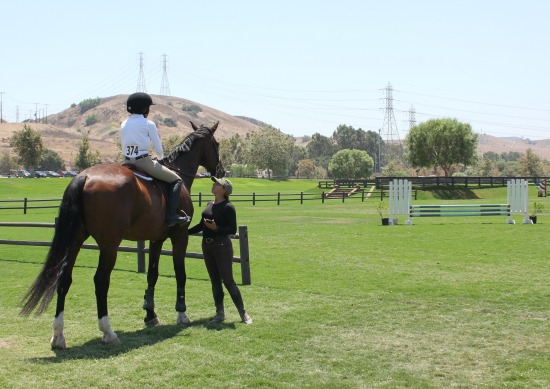
Regular readers of this blog know my day job is as a teacher. In that role I’m constantly learning –which means I’m really still a student–and being introduced to experts on various subjects (like this one who made me realize riding horses is good for brain health).
Given my high respect for authority and keen awareness that I am not an expert, it just seems wrong to doubt someone who is a professional and has more experience in the realm of all things horse. Most of the time, that is.
However, are there times when as a horse owner/lover we have to trust our own judgment and NOT listen to the expert? Are there times when we should definitely ignore a trainer’s input?
Two stories I’ve heard recently made me start thinking about this subject.
Story #1: Less Than Ideal Conformation
The first was a friend who rode in a clinic with a locally recognized trainer/horse show judge. I’m told the trainer was really kind, and an excellent communicator but inadvertently pointed out my friend’s horse’s conformation shortcomings by describing how the “ideal” horse would be put together in the hind end and how that better conformation would be better for things like transitions, lead changes, better form over a fence. Better, better, better.
My friend had a good ride, but came away thinking that her horse was mildly defective and not capable of a basic level of athleticism required for showing locally over small fences. In short, she felt down on her horse, a horse she loves.
Thankfully, my friend said two things that happened right after this helped change her viewpoint:
1.) a rider who had no knowledge of the trainer’s clinic comments rode her horse and remarked on how excellent the horse had been in one of the areas of training that the clinician was saying the horse would supposedly not be able to do well. Fancy that!
2.) a second horse friend who is a seasoned horse person basically said to ignore the clinician feedback and that the horse is fine for her purposes.
My friend decided to disregard the input of the expert based on non-expert of advice of fellow horse lovers who are close to the situation. In short, she realized it was okay to ignore a trainer’s input/opinion.
Story #2: Not Experienced Enough to Own a Horse
The second story is based on a different friend who grew up riding and had horses for years; she was involved in 4-H as a kid. This friend was out of horses for a long time, but has gotten back into them recently. She started taking lessons with a trainer who was recommended to her by word of mouth and even found a horse she’d like to buy at that barn.
My friend has been honest with the trainer that she would like to find a barn closer to her home. Long story short, the trainer is discouraging her from buying the horse stating that she is not ready/doesn’t have enough experience to own a horse.
Interesting to note: the barn she and the horse she loves are at now is a full service training facility and my friend not only wants to board closer to her home, but she enjoys taking care of a horse. She’d like a place where she can do some of the care which is not only fulfilling to her, but much less expensive. Cheaper and closer to home.
There is no conclusion point yet to Story #2.
What are your thoughts?
Have you ever chosen to ignore a trainer’s input (or other horse professional)? Can you think of situations when the experts should be disregarded? Please share your thoughts or stories in the comments section!
P.S. This post is not intended to disrespect or minimize the importance of trainers. It’s simply a reflection on whether or not we as equestrians should listen to our guts and our fellow equestrians more than experts in some instances.
Canter along with Knight and me on Facebook, Twitter, or Instagram. You can also subscribe to Saddle Seeks Horse by filling in your info below. Tally ho!

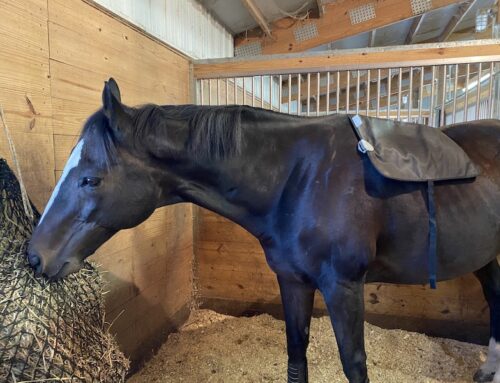
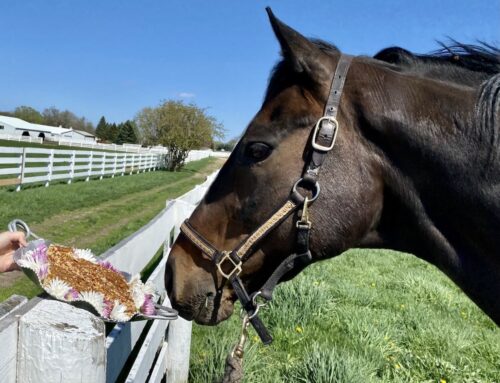
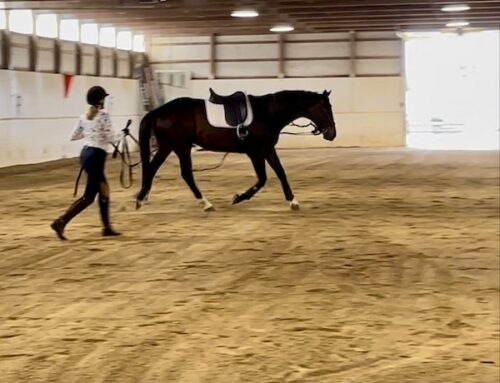
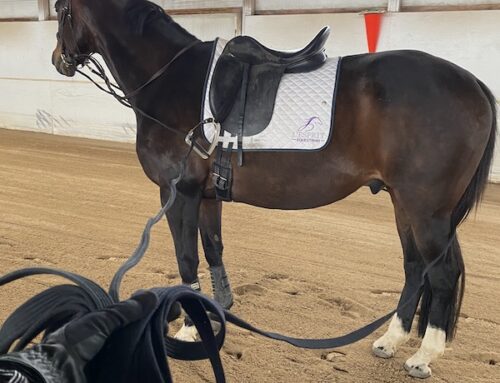
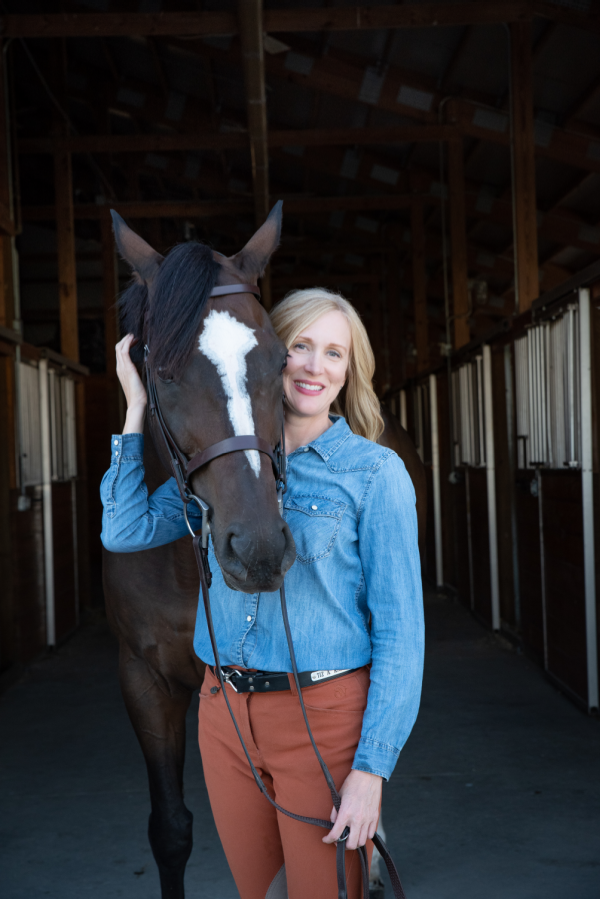

I had a previous trainer tell me that Tristan would never amount to anything, and that I should sell him and get a horse that I “deserved.” We were going through a rough patch, and she had worked with us for three years, then I moved away. I called her to talk it through, and she told me that she was communicating psychically with Tristan (I’m not joking) and that he was deeply unhappy with his life and I was only going to make it worse by forcing him to keep going. I hung up the phone and cried so hard I threw up. The next day, I made the decision that my priority was my relationship with him, and I would see where that took us. That was seven years ago, and while I’ve remained friendly with the trainer, I’ve never once though about going back and riding with her again. The trust is gone.
I wanted to laugh at the psychic part until you said you cried. So sorry. I’m glad you disregarded that trainer. Good riddance. And good for you for still being friendly–very admirable.
Tricky question! I think sometimes it’s beneficial to try to take a step back before you make a decision to view the context and try to take some of our own emotions out of it.
In situation #1, the comments were made as part of a clinic, where the goal is to teach everyone. Often in horses we talk about the theory behind a movement, or how exactly something look (like the ideal leg yield, for example). But many horses and riders aren’t perfect right away. Would transitions be easier for your friend’s horse if he was built differently? Yeah, sure. But that doesn’t mean he’s completely unable and unsuitable to do what she needs. I think it IS good to know, and maybe keep in mind what might be physically challenging for her horse. I tend to take things really personally, and sometimes too harshly then they are intended. It’s possible this same reaction is happening here.
In situation #2, I see two possible contexts. How long has your friend been riding? Does she have experience with common issues such as treating minor wounds, wrapping leg wraps, etc.? I ask because sometimes at full-care facilities, you don’t get a lot of hands-on experience outside of actually riding. Second, perhaps the trainer has her own self-interest at heart — she doesn’t want to loose the business. If it were me, I might look into getting some more hands-on experience if it’s not available at the current facility — your friend could seek out a program that allows you to groom, tack up, etc. or ask other equestrian friends to teach her. All in all, in my opinion, you’re never ‘ready’ for horse ownership… you just have to be prepared to learn a lot along the way!
I tend to be pretty invested in my trainers, and enjoy being part of a program. I don’t take trainers’ words for gospel, but once I’m in a program I like, I follow it. My safe-guard, so to speak, is to ask lots of questions if I’m unsure, or don’t fully understand.
Great tips, Tracy! I like the part about asking a lot of questions. Sometimes I take things personally too–glad I’m not the only one! 🙂
There are certainly trainers that develop toxic relationships with their clients, telling them things like “you aren’t good enough” or “I’m the only one who can teach you” to keep riders dependent on them. And in that case I would say run don’t walk!!
As with everything we are told, I say listen to your trainer with a healthy dose of self reflection, honesty, and skepticism if needed. In the end, this is why we have friends! To help us with judgment calls that we might be too close to.
Love it! “Run don’t walk!” Good point on why we have friends (and fellow horse bloggers). Thank you for chiming in!
I question my trainer. Always. Because I learned from my last trainer just how much damage can be done when the blind leads the blind. I’m wary of trainers who do nothing but praise and commend their students and tell each one that they have ‘natural ability’. I’m wary of trainers who bitch and moan and flip out when I make decisions in regards to my horse’s health without first consulting them….because it may inconvenience them in some way. I’m wary of trainers who tell me I can’t watch them ride my horse for the first couple of rides because they don’t want me piping up with input.
Even though I’ve thoroughly vetted and really like my current trainer, I’ve been so soured by my last trainer that doubts continuously plague me. Fiction is supposed to go out for two months of training with my new trainer and I’m nervous as hell, even though I’ve seen her ride him and I would trust her with his life.
I took a few lessons with various trainers after I departed the one that ruined my horse. One lied to me about the capabilities of the ‘school master’ I was riding and I ended up wasting money while teaching the horse instead of learning. The other dropped me back down to complete basics that we were well past and we got nothing accomplished AT ALL. She always wasn’t great at explaining anything and did nothing but praise me.
My current trainer mixes in constructive criticism in-between praises, kicks me off my horse and hops on when I just can’t figure something out (to demonstrate), and can so accurately pinpoint everything that I am doing wrong that it’s uncanny. But she also trusts me to know my horse and has even said that I’m 100% the best person to ride this horse. So when I tell her my decisions to do certain things with him, she doesn’t shake her head and call me stupid (like my last trainer) – she listens to me and gives me some sound advice.
In the end, it’s my horse and my money. If a trainer can’t respect that, then I don’t listen to them at all. I learned that lesson the hard way ><;
Sorry to ramble on haha.
Don’t be sorry for your strong viewpoints! I appreciate your comments (not a ramble). Thank you for sharing.
Absolutely I think it’s important to question or ignore trainers’ advice sometimes! I really think that following someone blindly is just a recipe for disaster. How many hunter riders unquestioningly follow their trainers’ advice and end up with drugged horses? Maybe that’s extreme. But I do think it is important to find the balance between respecting an expert’s opinion and wearing your critical thinking hat. That’s also why it’s so important to find a trainer you truly trust!
imo it’s 100% acceptable and even encouraged to have differences of opinion with your trainer as an adult amateur rider. the trainer-client relationship should be built on trust with a shared objective of helping the ammy achieve his/her goals, as defined by said ammy. this trust means that we are typically going to do what the trainer suggests. but the nature of the relationship should mean that it’s also ok if we don’t – that the trainer is flexible enough to adapt. (to be clear, tho: i’m NOT saying that you can tell a trainer that you don’t want to practice lateral work and they should still adapt to turn you into an UL dressage rider lol – let’s be realistic here haha)
if you find yourself straight up disregarding or ignoring your trainer’s input tho (those are strong words when applied to a *paid* advisor)…. well maybe it’s time for a new coach.
What typically will clue me in on how much to listen to a trainer is how much they listen to me, in return. My goals as a horse owner are not necessarily the same as the rest of their students or even their adult students. I’m lucky enough that my trainer will go along with some of my harebrained ideas but we also have a very open and honest relationship
Wow! I love that comment about how much to listen to a trainer based on how much they listen to you. i appreciate you sharing that!
Interesting topic! In my opinion, if you’re riding in a clinic you’re there to get a new perspective on your horse and your riding. Hopefully you get some useful feedback, but there’s absolutely nothing wrong with taking what you find helpful and scrapping what you don’t.
It’s a little trickier when you disagree with your own trainer since there’s a relationship there. You’re paying a trainer for their expertise, so hopefully you go along with most of what they tell you, but I think some occasional questioning is good. It means you’re learning and not just following.
There’s a rider at my barn who I don’t know very well, but I think she’s a new owner. For a while, every time I saw her she was questioning things. Like, “My friend told me I shouldn’t feed X because Y, so can I change his feed?” I think that has to be tough for a trainer. Obviously they want their clients to be interested and involved, and this rider certainly just wants what’s best for her horse. But I’m not sure what you do with a client who would rather take advice from their non-trainer friend than trust your expertise. Not to mention that it can’t be great for the horse to have things change every time the owner is exposed to a new idea.
I don’t think I have ever gone against an instructors advice. BUT at the end of the day, I know my horse better than them. I have done virtually all his reschooling by myself with the odd lesson here and there to stop us getting into bad habits.
If they were asking me to do things I don’t think he was mentally or physically ready for, I would tell them.
I also know that if Scottie finds something hard or doesn’t understand it he can get so stupid, that sometimes the best thing to do is stop, do something else for a few mins and then go back to it. Loads of instructors hate this as the horse is getting their own way and winning. But I know that once Scottie gets to a point he completely loses his mind and is just incapable of learning anything until he calms down. So if we reach this point there is no point carrying on because he wont learn what he is meant to be doing.
Really interesting question! I personally tend to ask tons and tons of questions about every single little thing- and my trainer/barn manager has been awesome enough to be super transparent with everything and is always happy to explain. That has definitely built our rapport and trust to the point where I know she has our best interest at heart, so we haven’t really run into a situation where I’ve felt the need to disregard her advice. Similar to your situation #1, she has also given a conformation critique of both horses I’ve ridden in the last few years, and pointed out where potential weaknesses may be. But she noted that at the end of the day, both horses are able to happily do their jobs well, and that was the most important thing. I think having that open and honest communication of strengths and weaknesses is really really important to building trust.
I think asking myriad questions is the way to go. Thanks for adding your insightful comments to the mix!